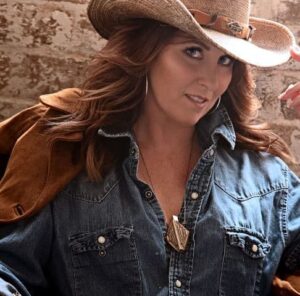Ari Fleischer, who served as press secretary for President George W. Bush from 2001 to 2003, assessed the current state of American politics in general and the Donald Trump presidency in particular as the keynote speaker Monday at the 80th annual Truckload Carriers Association Convention (Courtesy: WIKIPEDIA)
Statistically, they say, public speaking is the number one fear people have.
Ari Fleischer is not among those people. For more than 30 years, high-level communications has been his specialty. Beginning in the mid-1980s, he has served as press secretary for three members of Congress, as well as stints as field-director for the National Republican Congressional Committee, and as spokesman for the House of Representatives’ Ways and Means Committee. He then served as deputy communications director for George H.W. Bush’s 1992 re-election campaign and as communications director for Elizabeth Dole’s presidential campaign in 2000.
When Dole dropped out of the race, Fleischer joined George W. Bush’s presidential campaign after Dole dropped out of the race. When Bush was elected, Fleischer was hired on to stand on the loftiest stage on Earth, as White House press secretary.
He held the job for two and a half years. His tenure included the always difficult breaking-in period for the new administration, made even more hectic following the protracted 2000 election challenge. He was travelling with Bush on 9-11, and then stood as White House spokesman during the run-up to two wars.
So taking the stage Monday as the keynote speaker before a friendly crowd at the Truckload Carriers Association’s 8oth Annual Convention at the Gaylord Palms Resort and Convention Center in Kissimmee, Florida, was hardly a white-knuckle moment.
Like any polished speaker, Fleischer opened with a little ice-breaker.
“Now, I realize that this isn’t a religious meeting or a religious event, but I came here to make a confession,” Fleischer said. For a man who’s travelled in the circles he has, there was no telling how big a bombshell this could be. Without hesitation, he spilled it.
“I was actually raised as a liberal democrat,” he said. “My parents to this day remain proud principled Democrats who were horrified that I went to work for President George W Bush.”
In fact, he said when he left the White House in 2003, when the local newspaper asked his mother about his work there, “she told them that this was a phase I was going through.”
“My father told the same little local newspaper that if his son was going to rebel, it’s better I became a Republican than a drug dealer, but not by much.”
Fleischer told the crowd his transformation occurred while he was attending Middlebury College in Vermont. He said Jimmy Carter’s presidency turned him from a liberal to a conservative, then Ronald Reagan’s administration inspired him to switch parties.
He said it’s possible he’s the only person in the history of Vermont to arrive a liberal and leave a conservative.
Fleischer then recalled waiting in Texas as the 2000 election dispute was being sorted out. Bush, who by this point had made Fleischer something of an honorary Texan by nicknaming him Ari-Bob, grew concerned that they were losing time for their transition. He sent Fleischer ahead to Washington.
“When I returned to Washington and when I drove past the White House, I averted my gaze,” he said. “I could not bring myself to look at that building” until the election was confirmed and he drove for the first time into the White House grounds.
He said a few months later, in April, he got a note saying to meet the president out on the South Lawn for a game of catch. Bush had been asked to go to Milwaukee to throw out the first pitch at the Milwaukee Brewers’ new ballpark. Bush is a competitive guy, Fleischer said, and he wanted to make sure his pitch was a good one.
“So at the appointed hour I showed up at 6 o’clock on the South Lawn in a business suit along with the baseball glove I always keep in the trunk of my car. The president had the advantage of living there, he showed up in sweatpants and a bulletproof jacket.”
At one point Bush threw one in the dirt and it scooted past Fleischer halfway across the South Lawn. He went after it, threw it back, and as he was jogging back, that’s when he was hit with a, “Wow, look at where I am” moment.
“I can’t begin to tell you how much I loved my years at the White House,” Fleischer said. That is the key to being good at the job, he believes. “The heart of that job is to believe, to believe in your boss, to faithfully articulate that what the boss, the president of the United States, is thinking and why. And in that sense, the white house press secretary job as easy job.”
It may not have always seemed that way, but he said he loved working with the White House press corp. They were tough and smart. They could be cynical and mean. It was a lot of fun.
“I viewed that job as engaging in intellectual chess,” he said. “I knew if I said A that it would prompt them to ask question B. And I already had to be thinking about answer C, knowing that would prompt them to ask question D, and I was already thinking about answer E.
Even though that game ended for him nearly 15 years ago, Fleischer keeps close tabs on what’s happening at today’s White House. He can analyze and assess the current White House with a perspective few people have and that he’s happy to share.
That was why he was there, he said, to explain how Donald Trump managed to get elected president and how the administration is doing so far.
“American politics is going through a massive, massive change,” he said. “Huge trends that we accepted as the norm for decades are in flux and are likely to shatter.”
The 2016 election was the first time the country elected a president who had neither a political nor a military background.
“We have never elected a pure outsider to the presidency and that in and of itself tells you something about the mood of America,” he said.
Trump’s path to victory confounded so many of the experts, Fleischer said, because it was strewn with so many controversial statements, any one of which would have derailed most campaigns. “Those statements didn’t doom him,” Flescher said. “In many ways it propelled him forward.”
That’s what the sophisticated, educated experts refused to accept, Fleischer said. “Most Americans just plain don’t like or trust Washington, and that, ladies and gentlemen, is why Donald trump’s statements, particularly the most politically incorrect statements that he made actually define him as just what people were looking for.”
Americans were willing to elect an outsider, even if he came with obvious, glaring flaws. Even if his mouth gets him in trouble sometimes.
“Think about this, Fleischer added. “the two Republican candidates who did the best in the Republican primaries are the ones that experts hated the most, Donald Trump and Ted Cruz.”
This has tremendous implications for the future of the Republican party, Fleischer said.
Likewise, in the general election, he beat Hillary Clinton by chipping away at almost every demographic group that had helped push Barack Obama over the top in 2008 and 2012. The largest inroads were with people who make less than $30,000 a year.
“These are the people who typically succumb to the notion that Republicans are the party of the rich, that Republicans don’t care about you,” Fleischer said.
This points to a sea change occurring in American politics. The two major parties seem to be slowly trading their electoral bases, Fleischer said. “Where previously the Republicans always, always, always won college graduates, Democrats are starting to increasingly become the party that represents college graduates. Where typically Democrats have cleaned the clocks of Republicans along the lower income, blue-collar working people, particularly those with high school degrees, those voters are increasingly becoming Republican.”
But now that Trump is president, Fleischer said, he’s finding out how difficult it can be to govern. His favorable rating is almost as high as when he took office, but his unfavorable rating has shot up by 10 points.
“The intensity of the opposition to Donald Trump among the Democratic base is fierce,” Fleischer said. And to be honest, he added, Trump brings a lot of that on himself.
“If Trump were a balance sheet, the deficit side would lead off with his tweets,” Fleischer said. “There are the meanspirited attacks he’s made on people. His firing of James Comey, his failure to immediately denounce the Ku Klux Klan and Nazis in Charlottesville. The White House staff situation is a mess, and continues to be a mess, and that’s disappointing.”
But there are many plusses, Fleischer said. The markets are up, as are consumer confidence and job growth. “At long last he’s freed up the military to fight and to win, which is why Isis has been largely destroyed.”
He has stood up to China about intellectual property rights and other issues. At home he’s letting the business community know that they no longer have to fear additional regulations and additional tax hikes. His appointment of Neil Gorsuch to the Supreme Court and conservative judges throughout the judiciary is powerfully important to the future, Fleischer said.
There have been ups and downs, Fleischer said, but success for the Trump presidency is going to boil down to the economy, and particularly whether or not blue-collar, working Americans start to see yearly pay raises again.
If that happens, “Donald Trump can have a powerful, successful presidency,” Fleischer said. But there are a couple of caveats.
One is the Mueller investigation into possible collusion between the Trump campaign and Russia and what comes of that. The other is Trump himself, if he’s made himself so personally unpopular that he will not get credit for the positive things that are happening.
“If I were a White House aide today, that would be my biggest worry,” he said. “They don’t need to shake things up. They need to calm things down.”
Fleischer pointed out that when the tax reform bill went through, Trump’s popularity and that of congressional Republicans all went up. “There is a clue and a lesson there. Get things done.”
Fleischer ended his speech with a final point. In the last election, he said, young voters preferred Clinton, older voters voted for Trump. Single voters went for Clinton, married voters preferred Trump.
“So, for my absolutely unbiased, nonideological point of view, I hope that everybody in this room who is young, may you get older. And anybody here who is single, may you find someone at this meeting.”
Klint Lowry has been a journalist for over 20 years. Prior to that, he did all kinds work, including several that involved driving, though he never graduated to big rigs. He worked at newspapers in the Detroit, Tampa and Little Rock, Ark., areas before coming to The Trucker in 2017. Having experienced such constant change at home and at work, he felt a certain kinship to professional truck drivers. Because trucking is more than a career, it’s a way of life, Klint has always liked to focus on every aspect of the quality of truckers’ lives.













